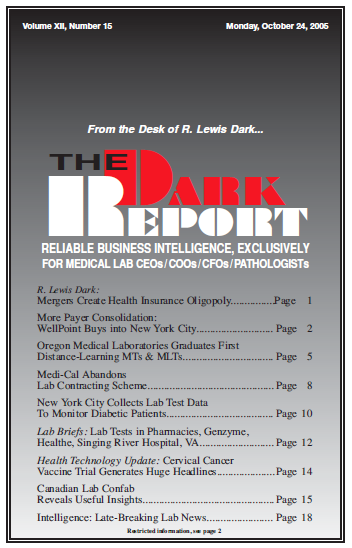CEO SUMMARY: With an estimated 780,000 diagnosed and undiagnosed diabetics in their city, officials at the New York City Department of Health and Mental Hygiene decided to take proactive action. Labs will now electronically report HbA1c test results electronically to city health officials, who will use this information to proactively interact with both clinicians and …
NYC Collects Lab Results To Monitor Diabetics Read More »
To access this post, you must purchase The Dark Report.


